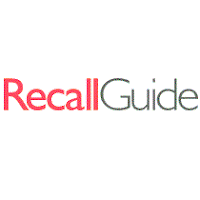As a parent, it is important to know what medications are safe for your child to consume before he or she takes any medication that could potentially do more harm than good. Not all medications are safe for consumption, at any age. There are over-the-counter medications and prescription drugs, which may be fairly safe for an adult to consume, yet present a much higher risk when consumed by a child. In addition, some children may be predisposed to developing an adverse reaction when taking certain types of medications.
Medications Recommended for Children
With so many medications from which to choose, it can be difficult for a parent to know with 100 percent certainty what meds to give their child for the specific ailments he or she may be experiencing. Consulting with your physician before giving your child any type of medication is always advised.
The following are some of the low risk medications for children to consume:
- Ibuprofen: Motrin (for ages two years and older)
- Acetaminophen: Tylenol (for ages two years and older)
- Decongestant: Sudafed or Dimetapp (for ages five years and older)
- Cough Suppressant: Delsym (for ages five years and older)
- Antihistamine: Benadryl (for ages five years and older)
Be sure to use medication specifically labeled for use with children. Medication intended for adults should never be given to a child. It is also important you do not mix medicines, as your child could get more of a particular ingredient than he or she needs. Keep in mind that one of the key factors when administering medication to children is dosage. Use the measuring device included with the medication so you child receives the proper dosage.
Safely Administering Medicine to Children
Before giving your child any type of OTC or prescription medication, be sure you know:
- The drug’s name and purpose,
- How much to give and how often,
- How long your child needs to continue taking the medicine,
- How it is to be administered,
- Whether it should be taken with food,
- How it needs to be stored,
- Whether he or she is allergic, and
- Common side effects.
Being properly informed can help you avoid complications which could arise as a result of your child overdosing or experiencing some type of adverse reaction. Medication of all types must also be stored securely away so it cannot be accessed by young children, who are naturally curious and could be injured if they find a bottle of any medication.
Non-Medicinal Treatment Alternatives for Children
Not all childhood illnesses or symptoms will require medical treatment. In some instances, there may be a non-drug alternative your doctor can recommend to help speed your child’s recovery. These simple at-home remedies can be used to help alleviate some of the symptoms, pain and discomfort your child may be experiencing:
- Lots of rest
- Plenty of clear liquids
- Saline drops or nasal sprays
- Cool-mist humidifier
- Warm-air vaporizer
Erring on the side of caution is always advised when it comes to medication and children. If your child falls ill, be sure to discuss your medication options with your doctor before administering any type of OTC or prescription drug.
Sources:

